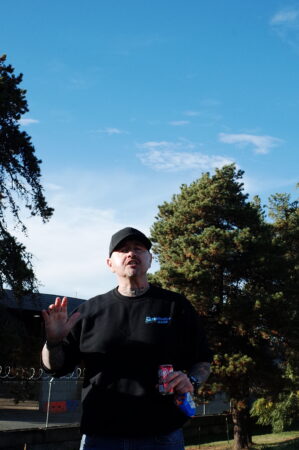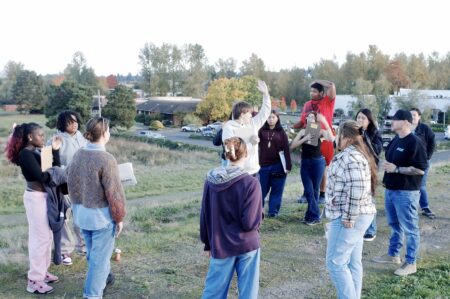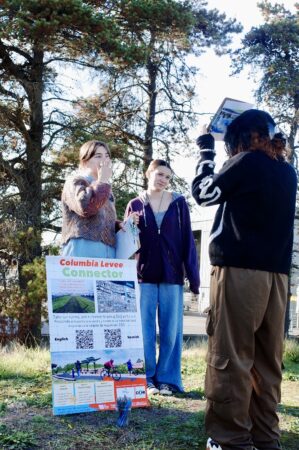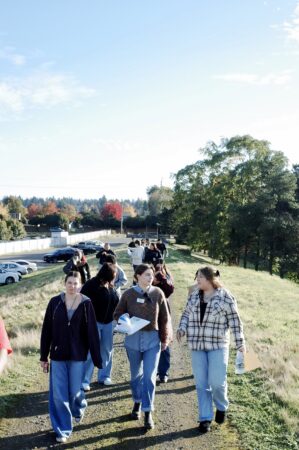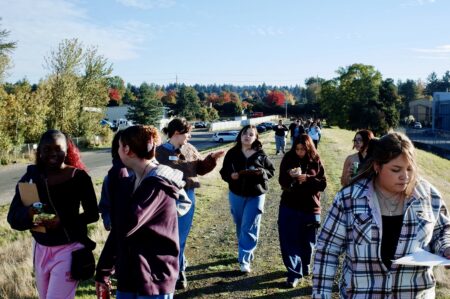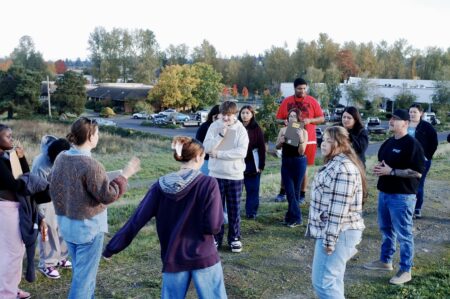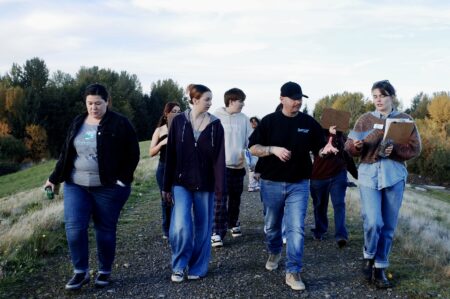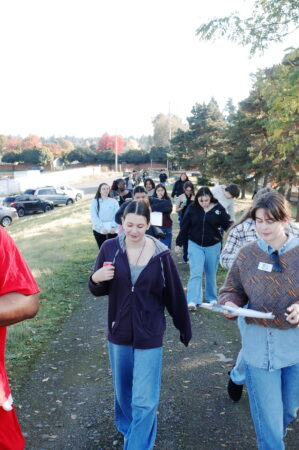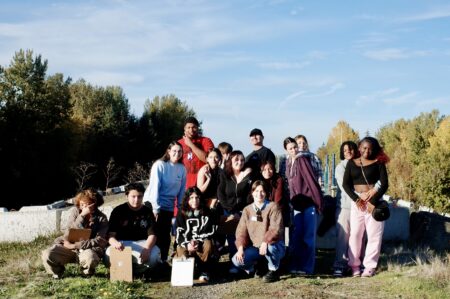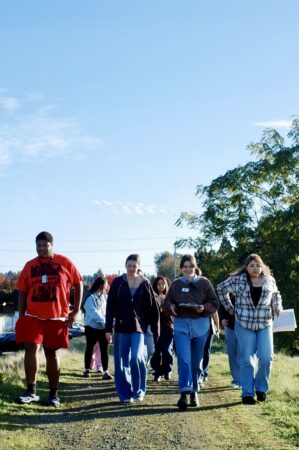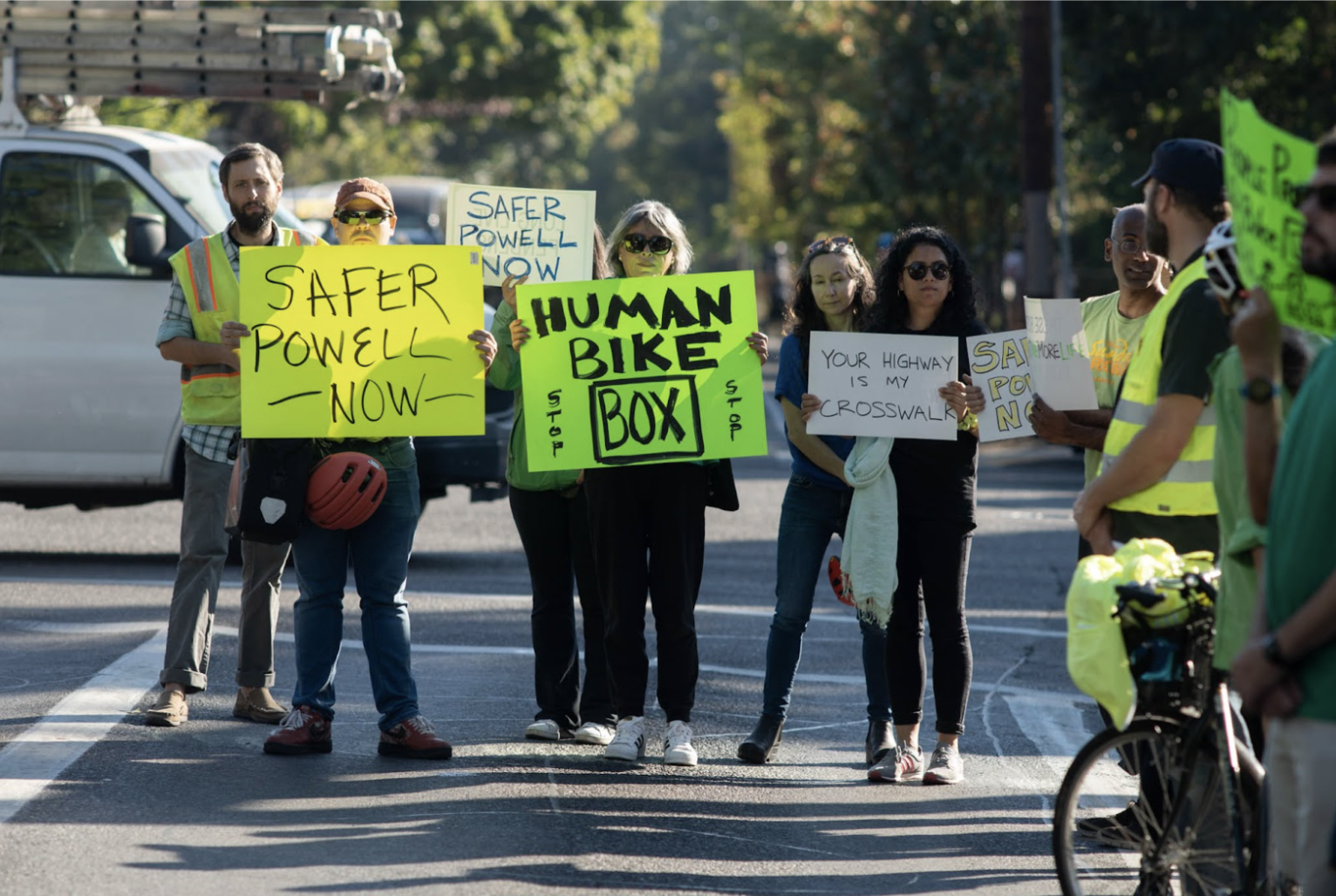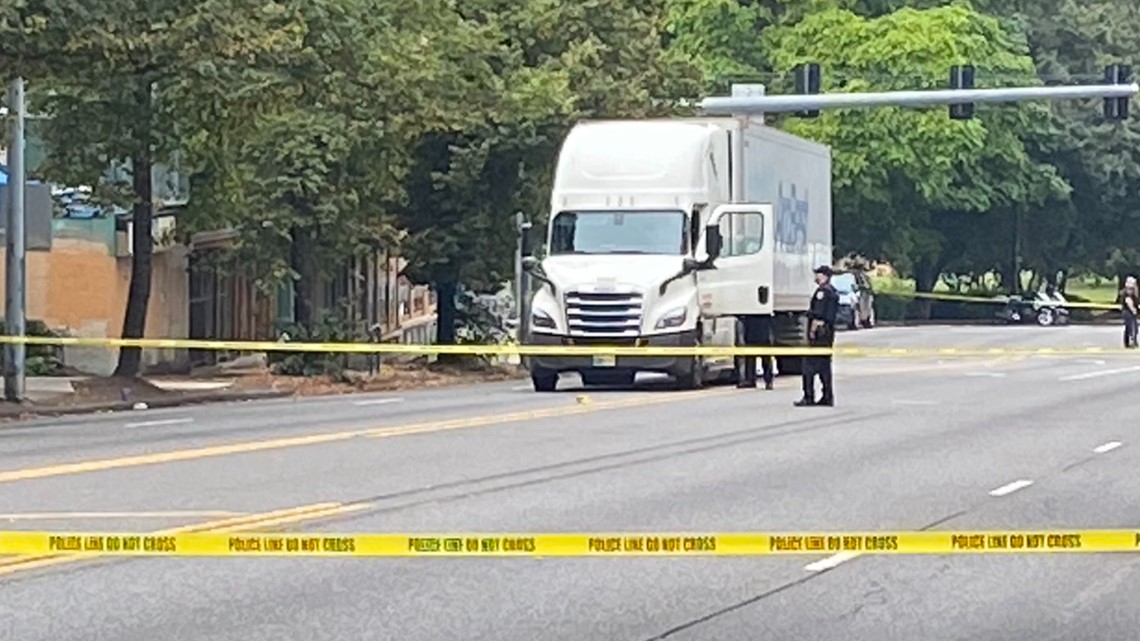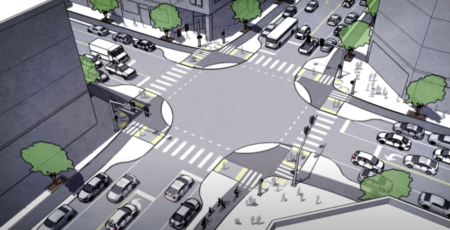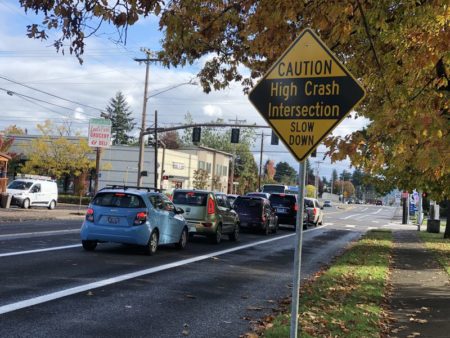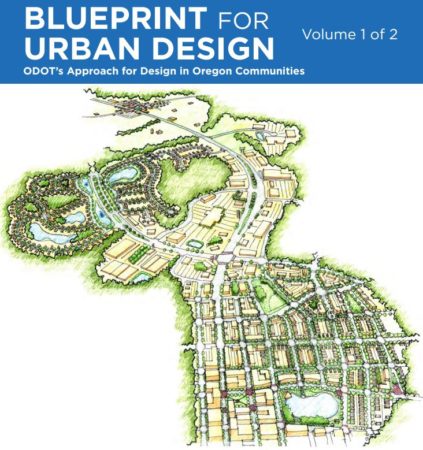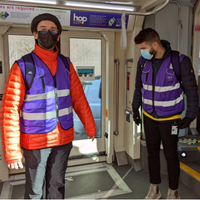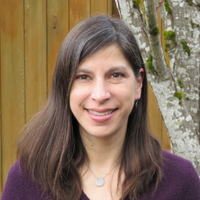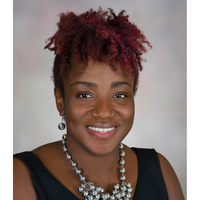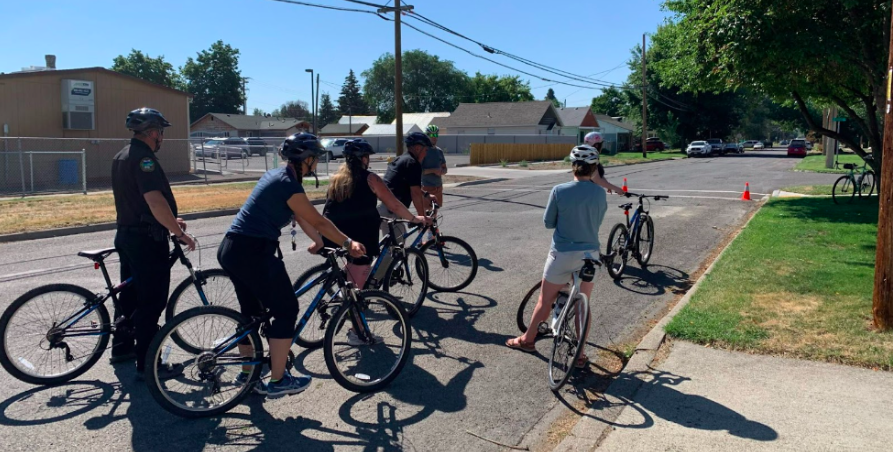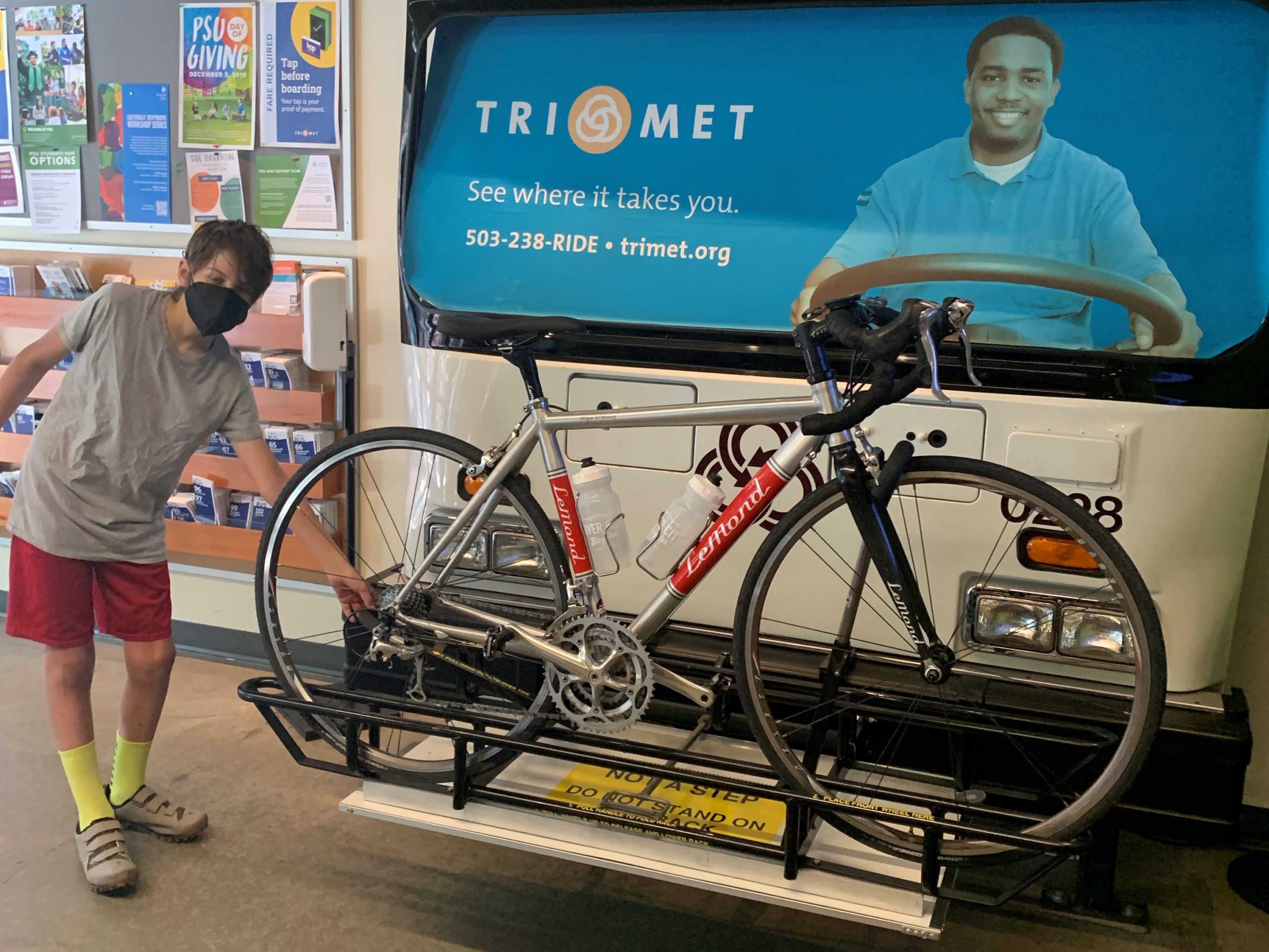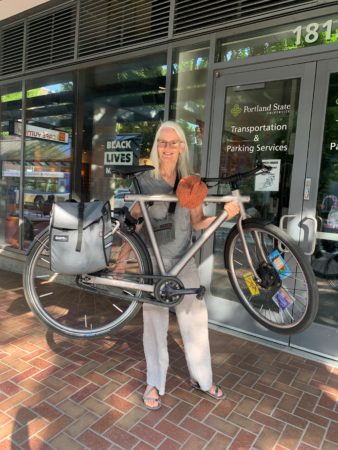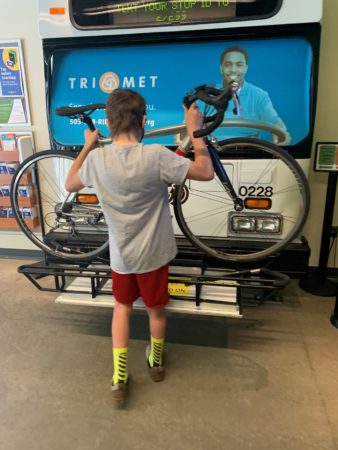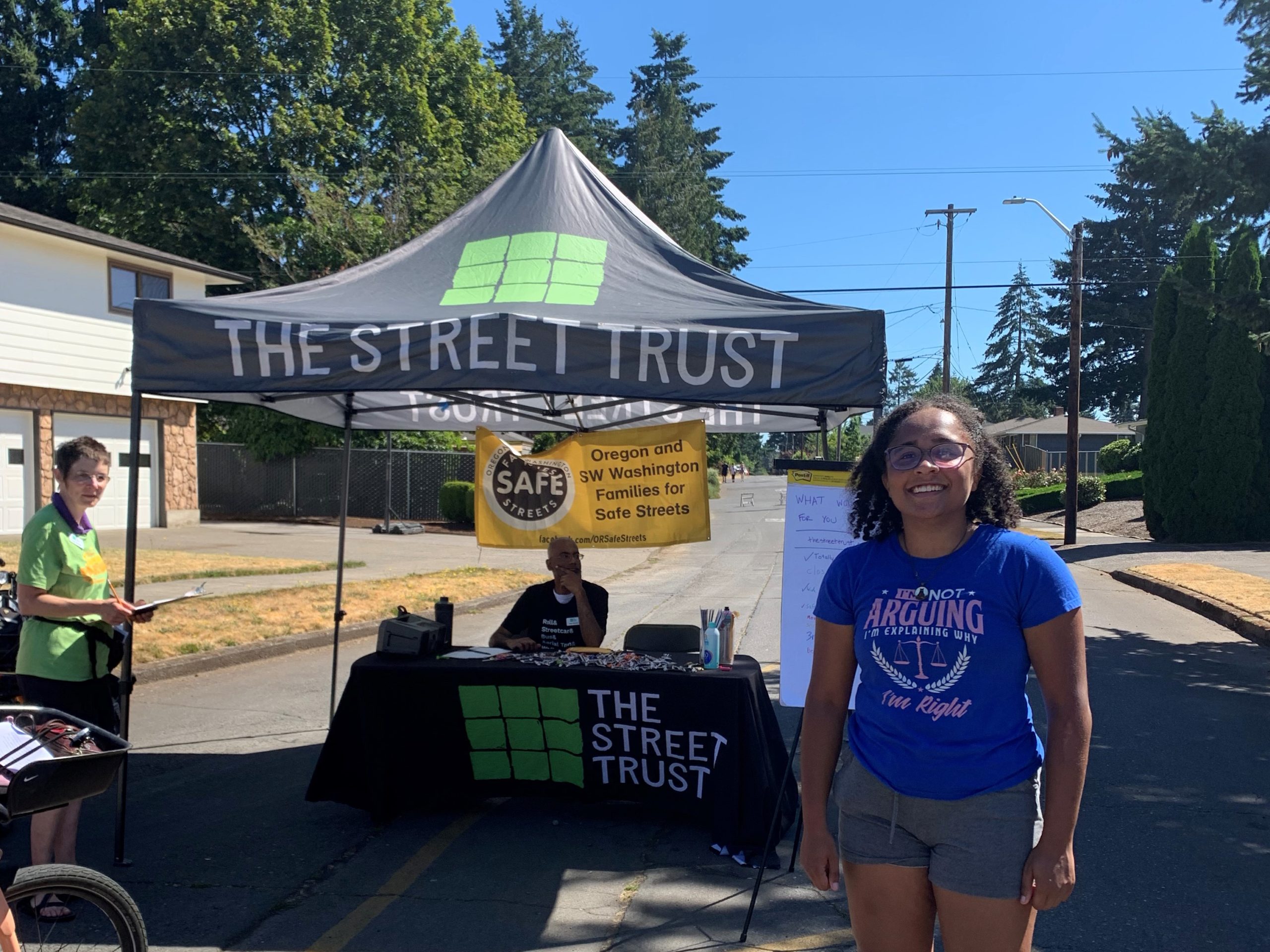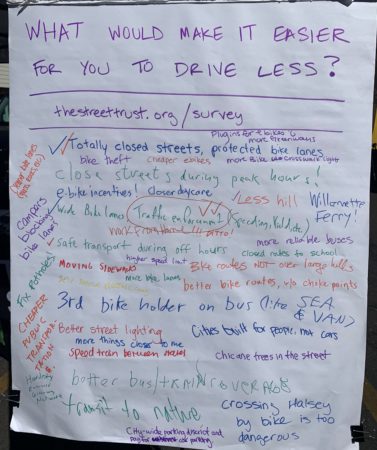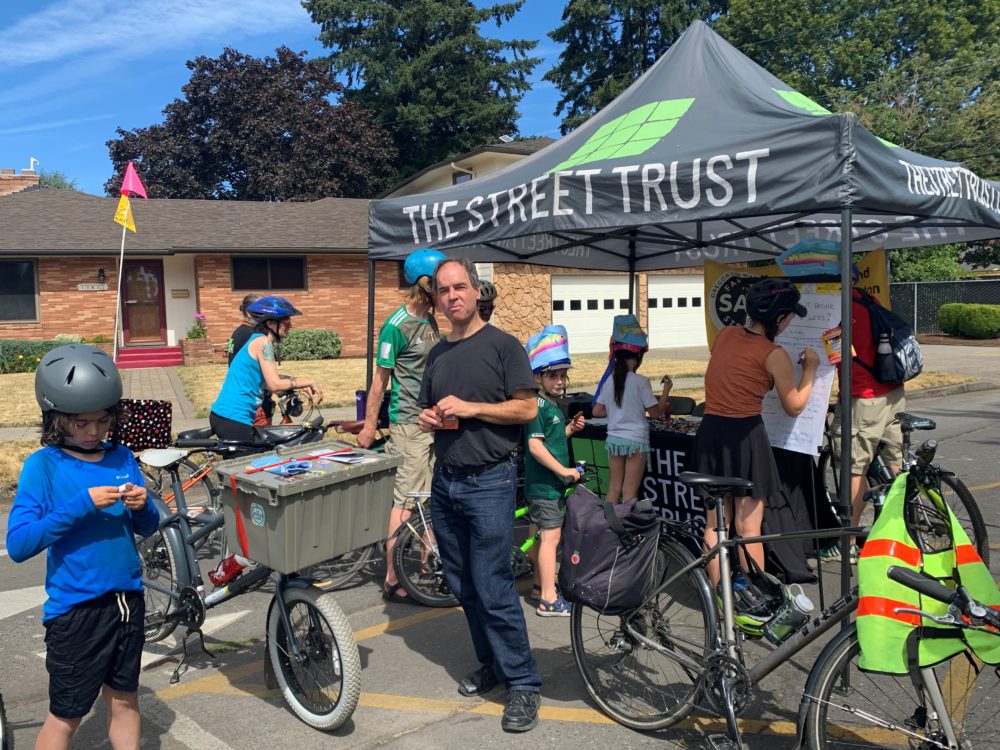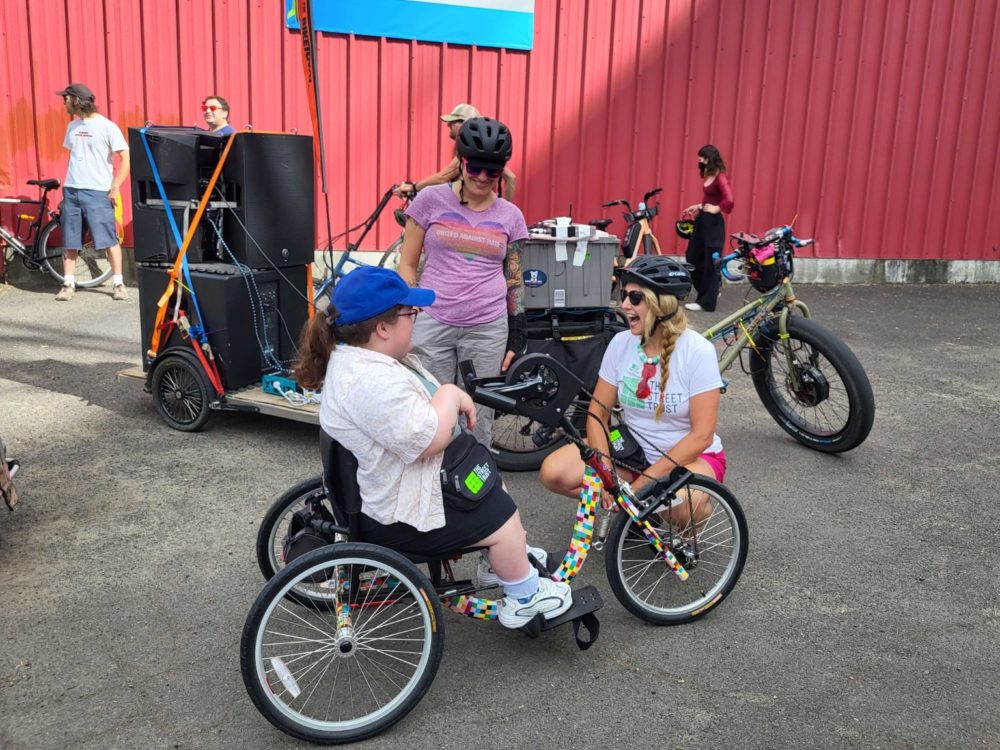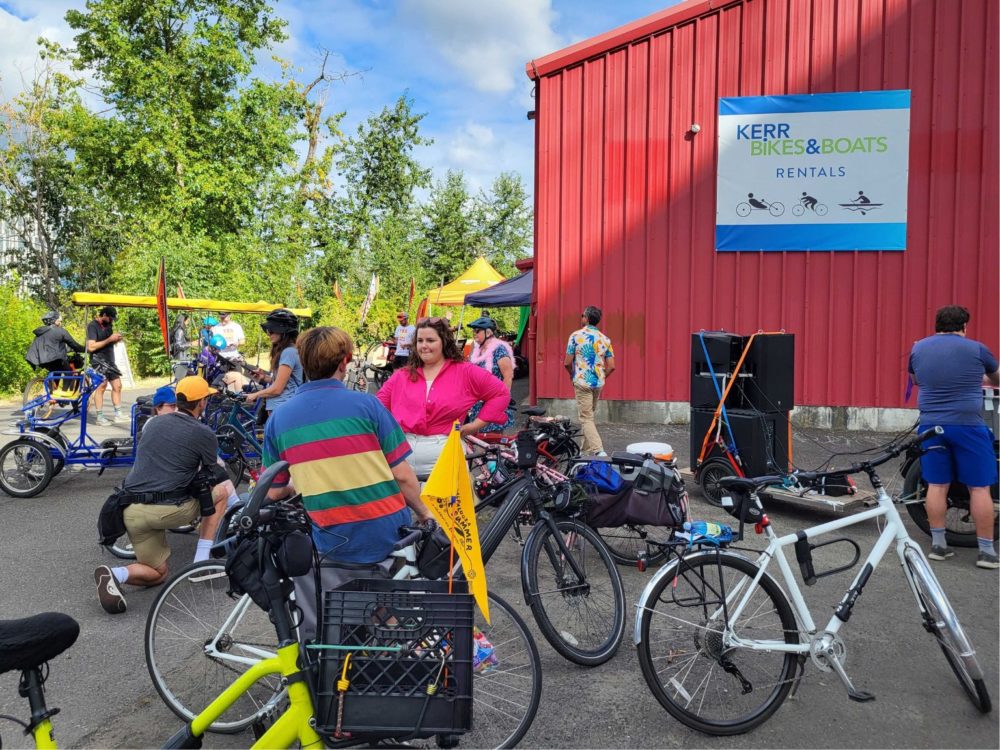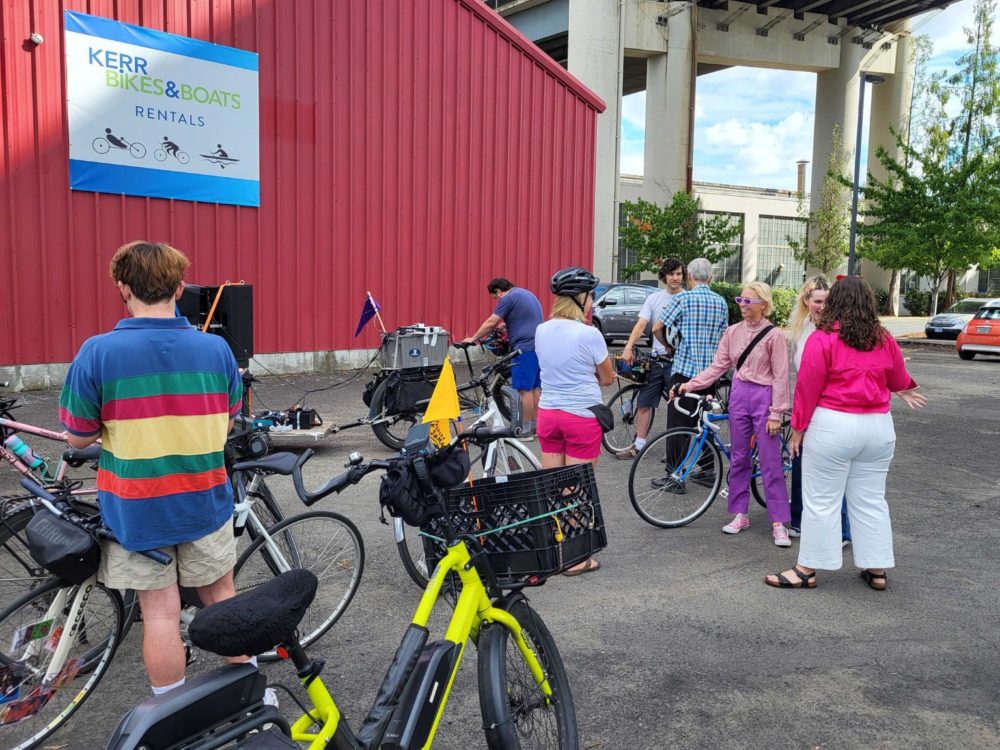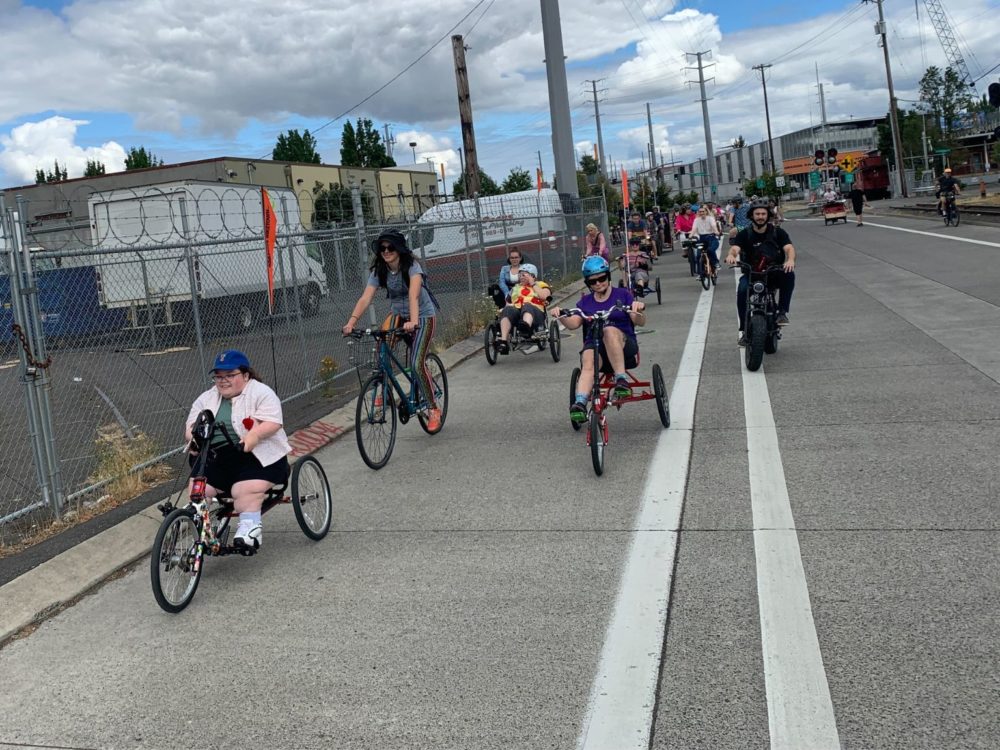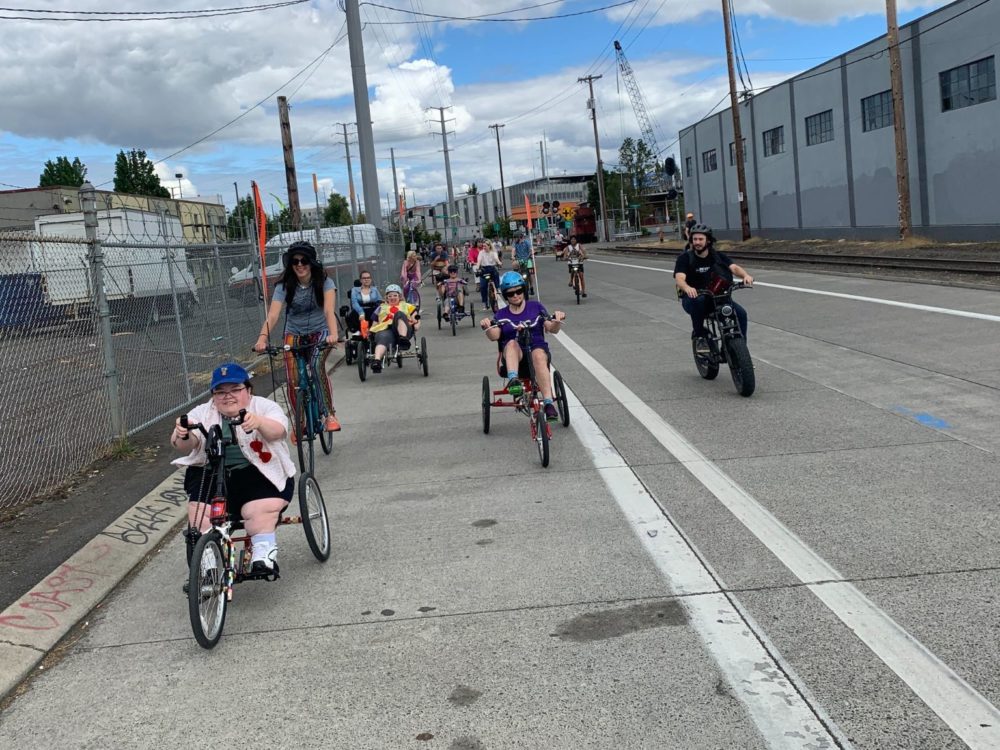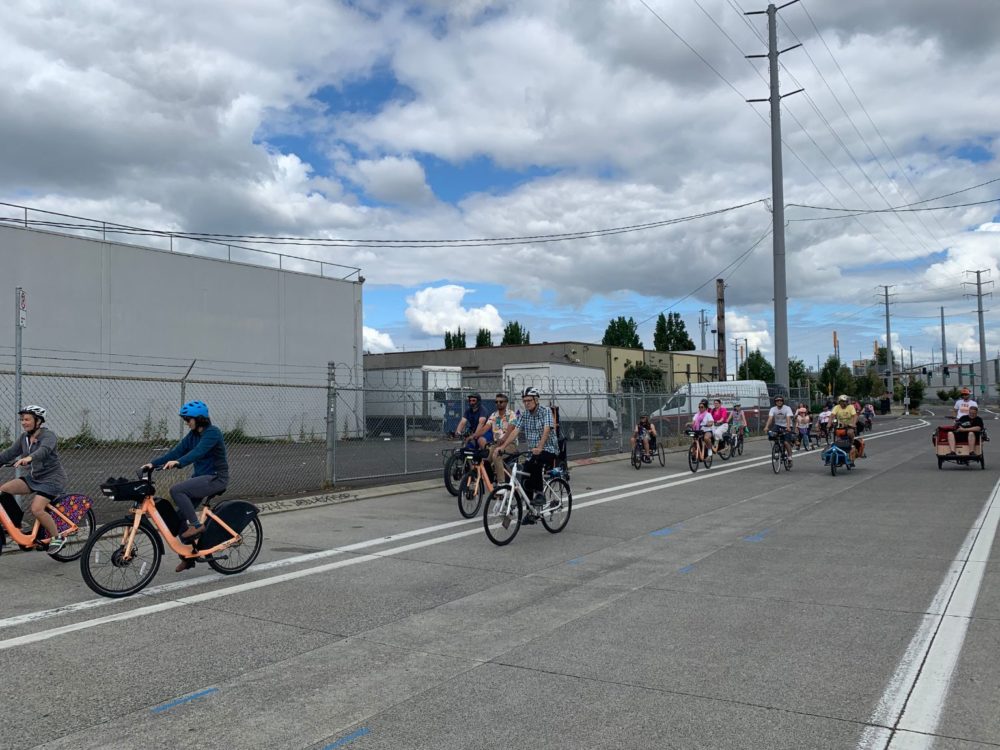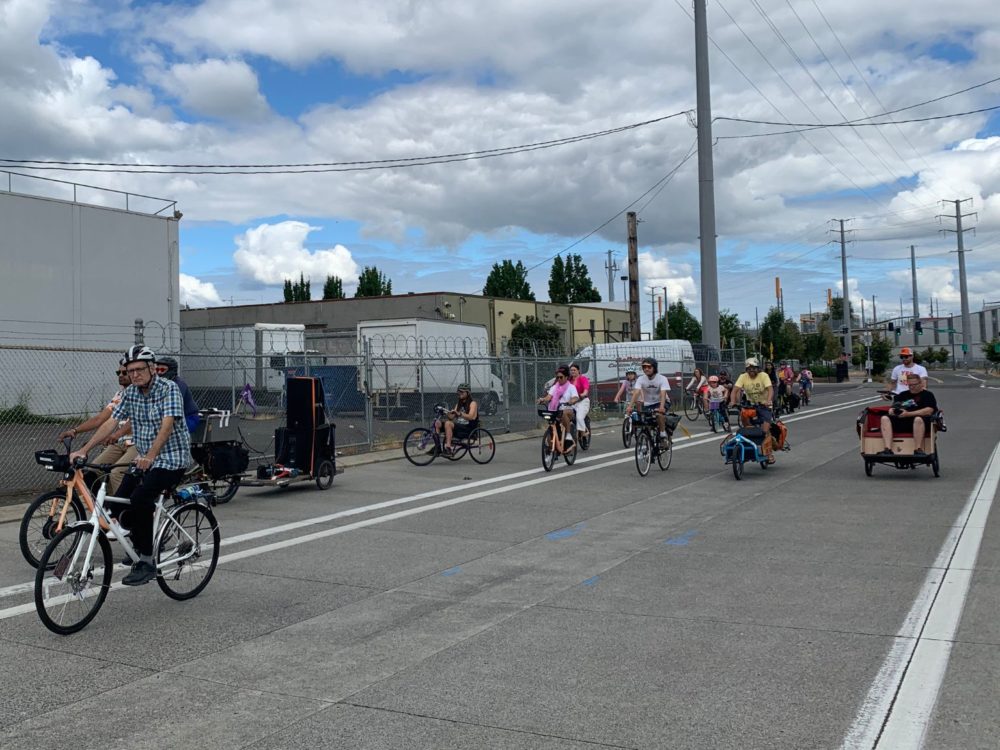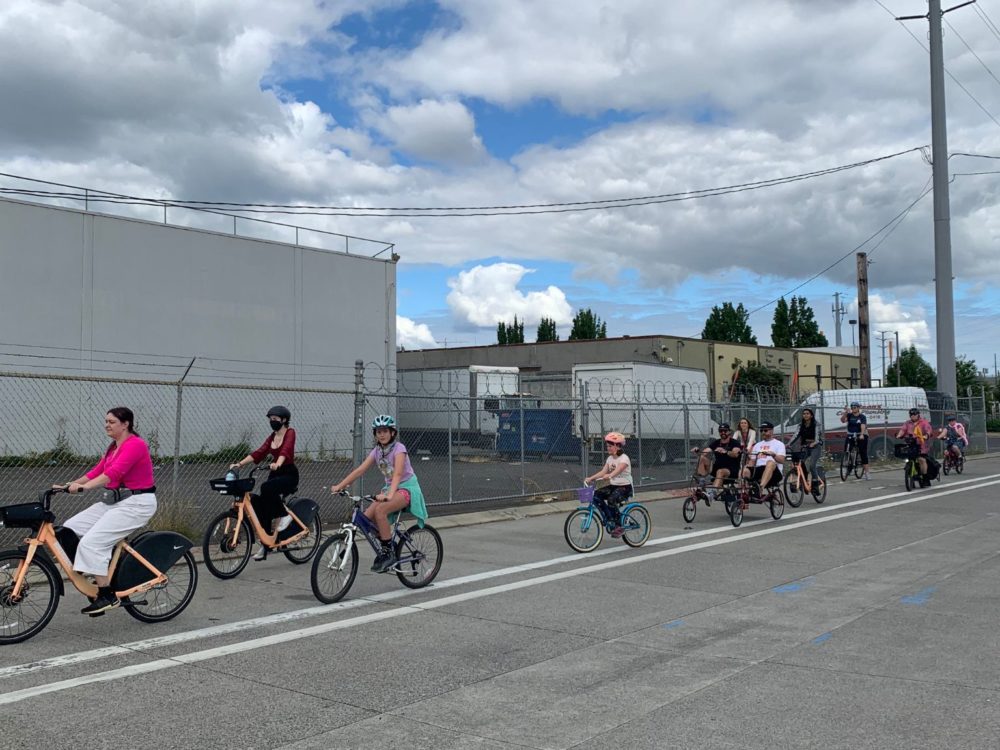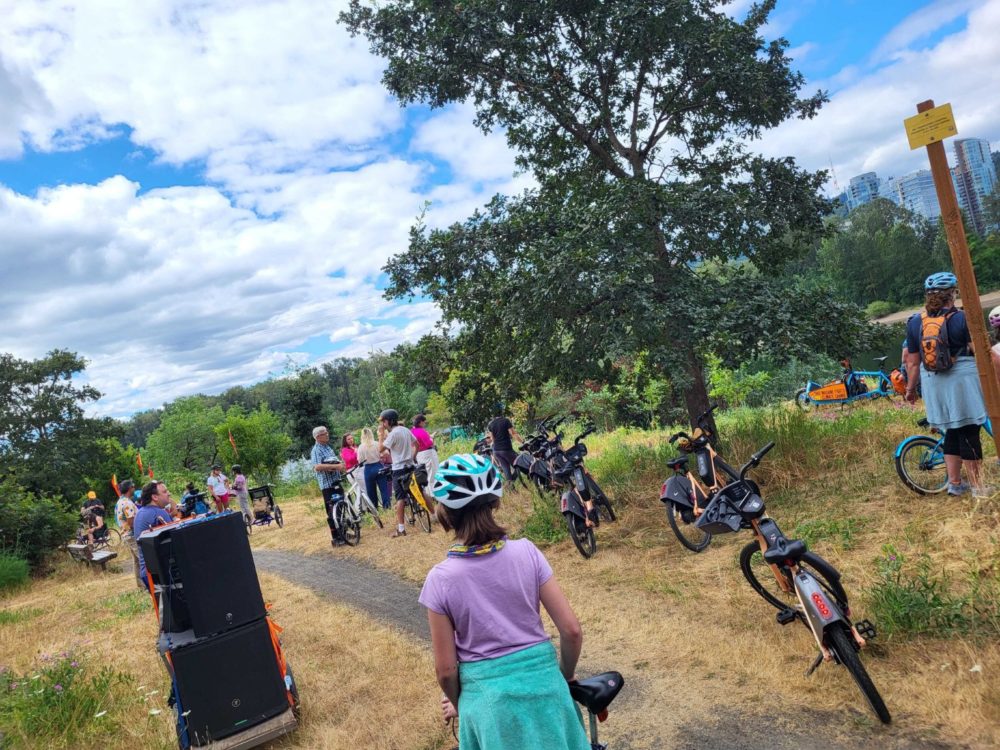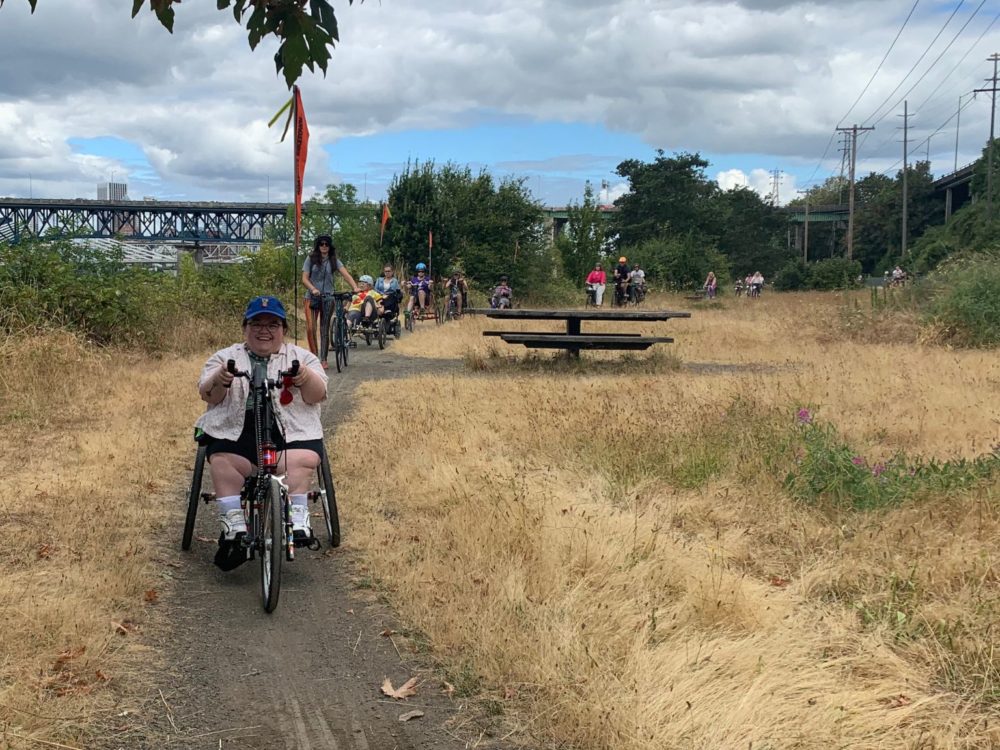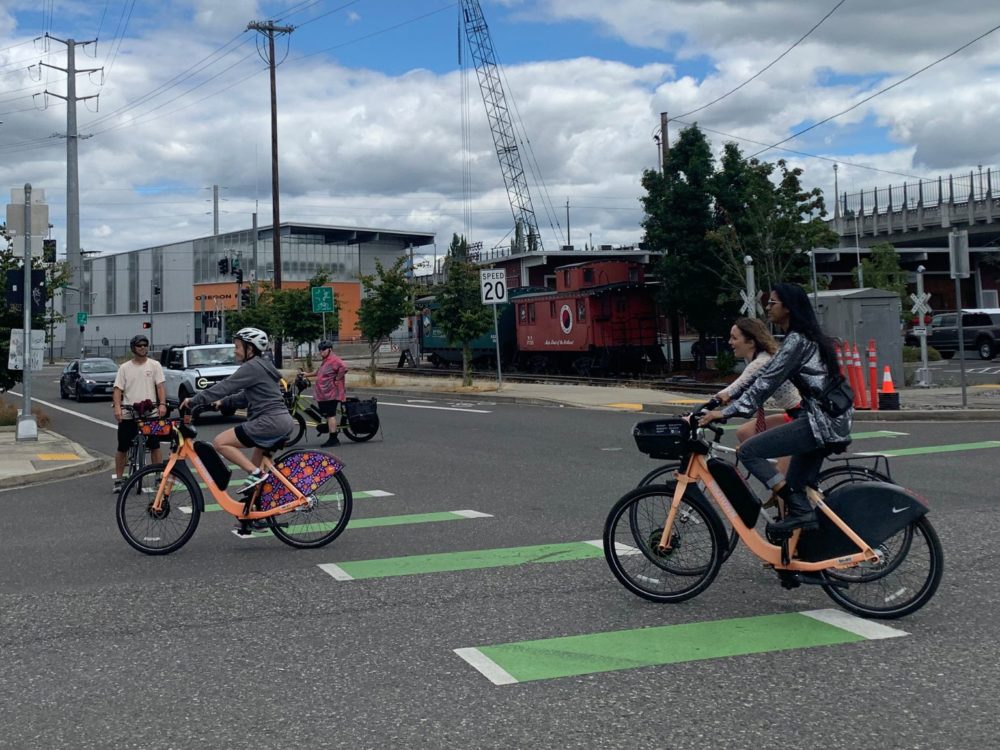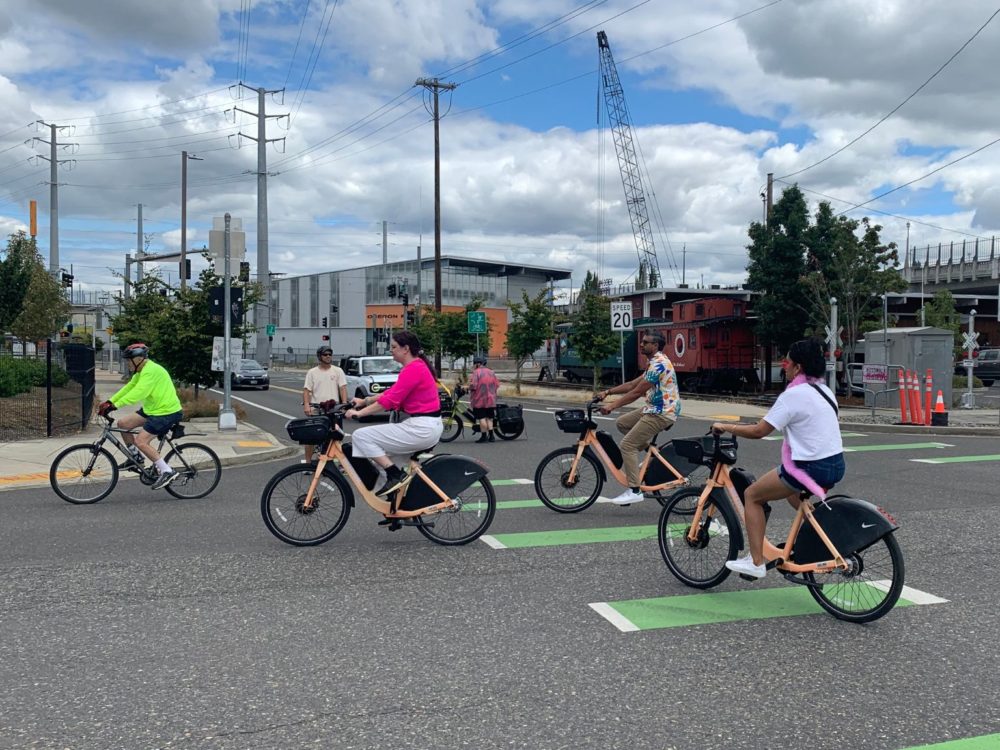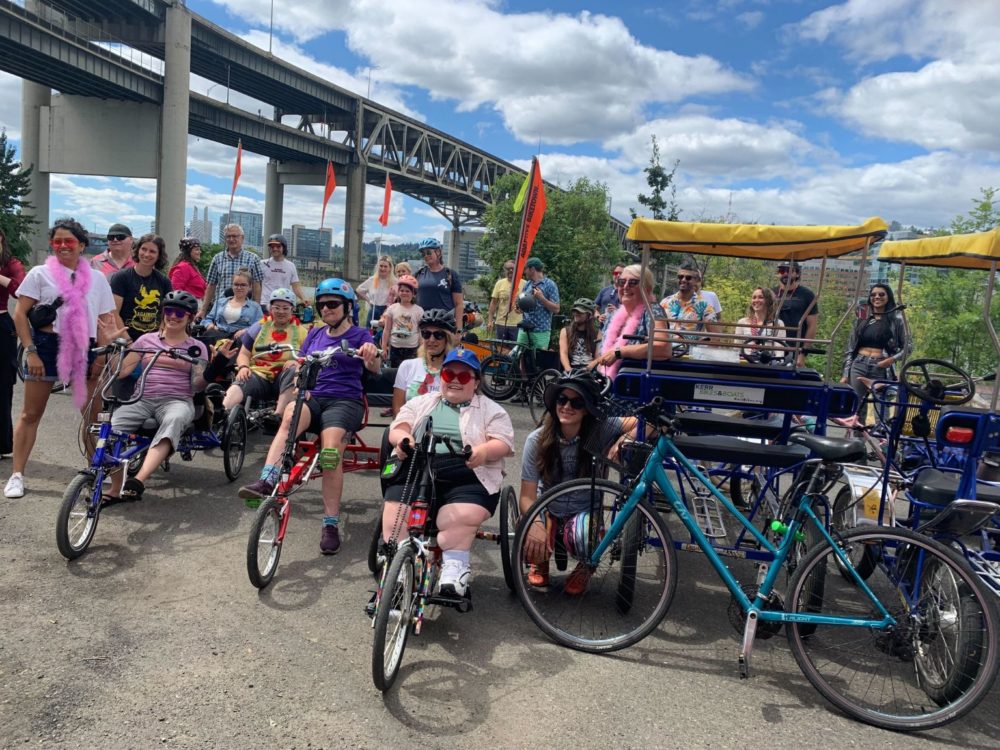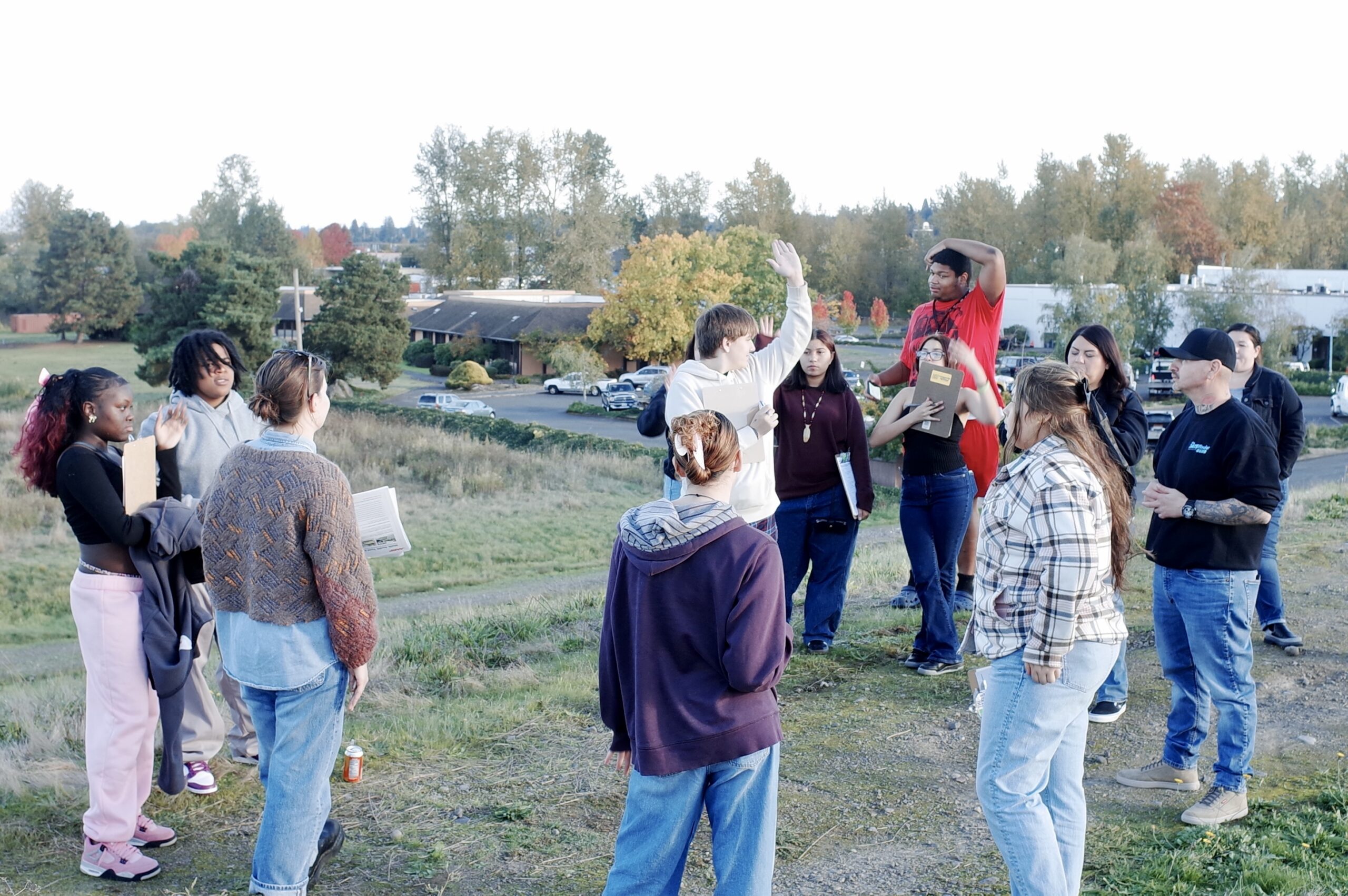
November 7, 2024
In February of 2023, The Street Trust connected with The Pathfinder Network to discuss community engagement and collaboration with the students at Parkrose High School. The Street Trust is currently working as the backbone organization behind an initiative to build a multi-modal pathway in East Portland at the cross levee spanning from Sandy Blvd to NE Marine Drive at about 142nd (running north-south), strategically linking Argay and Parkrose Neighborhoods to the bustling Columbia River.
Guided by The Street Trust, this community-driven project will increase accessibility, connectivity, safety, and resilience within our neighborhoods. We envision an interconnected path between Parkrose and Argay Neighborhoods, providing crucial access to the Columbia River. By improving access to green spaces and reducing the urban heat island effect, the path will assist in creating a harmonious relationship between people, nature, and the built environment.
Essential to this project is extensive community engagement, understanding the needs of those living, working, studying, recreating, and playing in the Parkrose, Argay-Terrace, and surrounding neighborhoods. By fostering collaboration across sectors and stakeholders, we aim to enhance the quality of life for residents, creating a more vibrant and accessible community while championing historically underserved populations.
Thanks to a grant from APTA Local Coalition Grant Program and funding from Multnomah County REACH, The Street Trust was able to expand this collaboration, including a presentation at The PATHfinder Club about civic engagement through public space, the onboarding of a Youth Steering Committee Member (Parkrose sophomore Bradynn D.), and a compensated walk audit with thirteen club members.
Bradynn, our Youth Steering Committee Member, has participated in stakeholder meetings for the project, where we government, private sector, and community partners oversee the project. Her contributions to the communications and public safety plan as a well-connected Parkrose resident have been invaluable.
Most recently, Club members joined The Street Trust staff in a walk audit along the proposed pathway. During the walk, students received a meal and provided feedback about what they would like to see on the path. Students highlighted the need for good lighting, a paved path, vibrant public artwork, and security features. Some students even highlighted interest in community activation projects like a community garden or a monthly food truck event. Of all student attendees, 100% said they would use this path if built! At the end of the walk, each student received a $25 Visa gift card.
Looking forward, The Street Trust would love to continue collaboration with The Pathfinder Network and the amazing students at Parkrose High School, encouraging students to get involved with local community projects and feel empowered doing so. One way to encourage this is continued compensated engagement, where students are paid for their time and expertise. This multi-modal path project is a several-year-long process to plan, fund, and build, and we hope to continue this partnership with The PATHfinder Club throughout.

